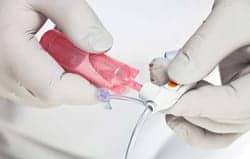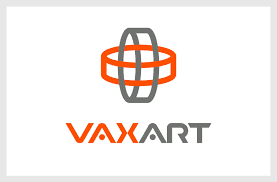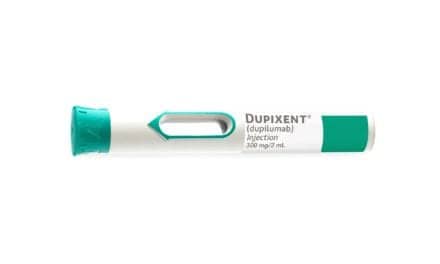The US FDA updated the Emergency Use Authorization (EUA) for Regen-COV by halving the dose to 1,200 mg (600 mg casirivimab and 600 mg imdevimab), according to Regeneron Pharma. As part of the updated EUA, Regen-COV should be administered by intravenous (IV) infusion, with subcutaneous (SC) injections being an alternative when IV infusion is not feasible and would lead to a delay in treatment, the company said.
Regen-COV is authorized for use under an EUA to treat mild-to-moderate COVID-19 in adults and pediatric patients (12 years of age and older weighing ≥40 kg) with positive results of direct SARS-CoV-2 viral testing, and who are at high risk for progression to severe COVID-19, including hospitalization or death. The Fact Sheet updates remove the previously authorized 2,400 mg IV Regen-COV dose.
The updated FDA authorization is based on data from several trials, including a recently presented Phase 3 trial which showed Regen-COV reduced the risk of hospitalization or death by 70% in high-risk non-hospitalized patients, and that the treatment effect was consistent between the 1,200 mg and 2,400 mg doses. The SC administration was authorized based on the totality of scientific evidence, incorporating clinical, viral load reduction and pharmacokinetic data.
In addition, in vitro research has shown that Regen-COV retains potency against the main variants of concern circulating within the US, including the P.1 variant (first identified in Brazil, now classified by the World Health Organization [WHO] as Gamma) and the B.1.351 variant (first identified in South Africa, now classified by the WHO as Beta). Consequently, Regen-COV remains available for use in all 50 states. The combined frequency of the P.1 and B.1.351 variants now exceeds 10% of new COVID-19 diagnoses across eight states (Arizona, California, Florida, Illinois, Indiana, Massachusetts, Oregon and Washington), and the prevalence of these and other variants continues to be closely monitored.
“Despite increased use of vaccines, thousands of patients are still becoming infected in the U.S. every day, with many at high risk of serious complications from COVID-19. Unfortunately, to date only a fraction of patients eligible for antibody treatments have received them, which we hope will change based on this updated FDA authorization. Regen-COV is readily available and supplied free of charge by the US government,” said George D. Yancopoulos, MD, PhD, President and Chief Scientific Officer at Regeneron. “Regen-COV has also demonstrated potency against the main variants of concern to date in vitro and is the only antibody therapy currently available across the US, including in states where variants first identified in Brazil and South Africa are circulating at a higher rate.”
Overall, more than 9,000 people have received IV Regen-COV in clinical trials in both hospitalized and non-hospitalized settings. In a pooled Phase 1/2/3 analysis of non-hospitalized patients, investigator-assessed infusion-related reactions (≥grade 2) were observed in 0.2% (10/4,026) of those who received Regen-COV at the authorized dose or a higher dose. Rare anaphylactic reactions have been reported as part of the Regen-COV clinical program. In trial participants who received study drug via SC injection, injection site reactions were observed in 12% of those treated with Regen-COV (88/729) and 4% with placebo (10/240).










